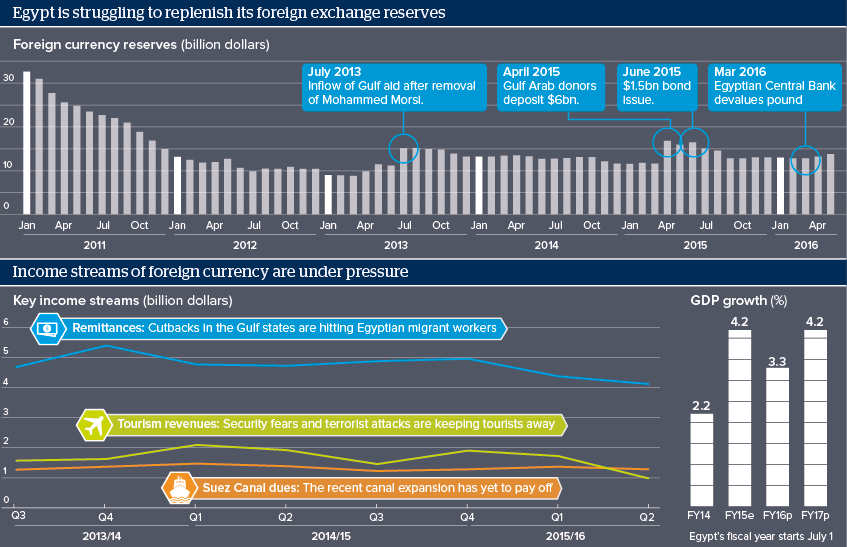Egyptian economy will take years to improve
Cairo's priority is to address energy and dollar shortages
Source: Egypt Central Bank, World Bank
Outlook
President Abdel Fattah el-Sisi is struggling to turn around Egypt's economy. Dollar shortages are acute, and streams of foreign-exchange income, such as tourism, the Suez Canal and remittances, are either dropping or stagnant. GDP growth is set to fall to 3.3% in 2016, down from an estimated 4.2% in 2015, according to the World Bank.
The government is taking steps to address these shortfalls. Gas production should start to rise from next year, after several projects come on-stream, and the government is in talks with the IMF for a three-year loan. Cairo also has the crucial support of Gulf Arab states.
However, even with a return to 4.2% GDP growth from 2017, as the World Bank forecasts, this will be insufficient to reverse the economic damage done since 2011: 27.8% of Egyptians now live below the poverty line, compared to 25.2% in 2010/11.
Impacts
- Further terrorist attacks could cause long-term damage to the tourism sector.
- Concerns over Egypt's stability will drive international aid towards the country.
- Introduction of VAT and rising inflation would squeeze the poorer sections of society.
See also
- Food insecurity risks unrest across North Africa - Dec 6, 2017
- Youth marginalisation will feed Middle East unrest - Jan 5, 2017
- Egypt is on track for IMF loan - Sep 30, 2016
- Egypt's erratic policymaking will put off investors - Sep 2, 2016
- Saudi deposit could re-trigger Egypt islands tensions - Aug 18, 2016
- Energy price rises will raise dissatisfaction in Egypt - Aug 9, 2016
- Egypt import controls will not prevent devaluation - Mar 4, 2016
- More graphic analysis
